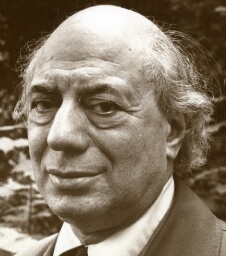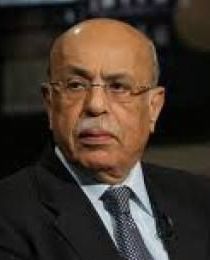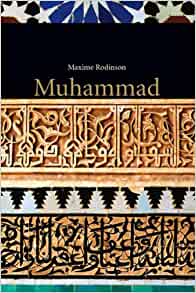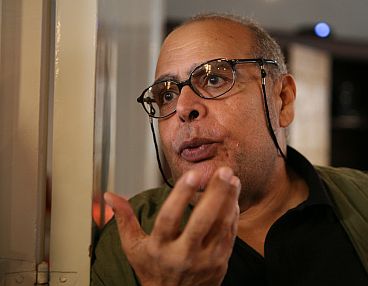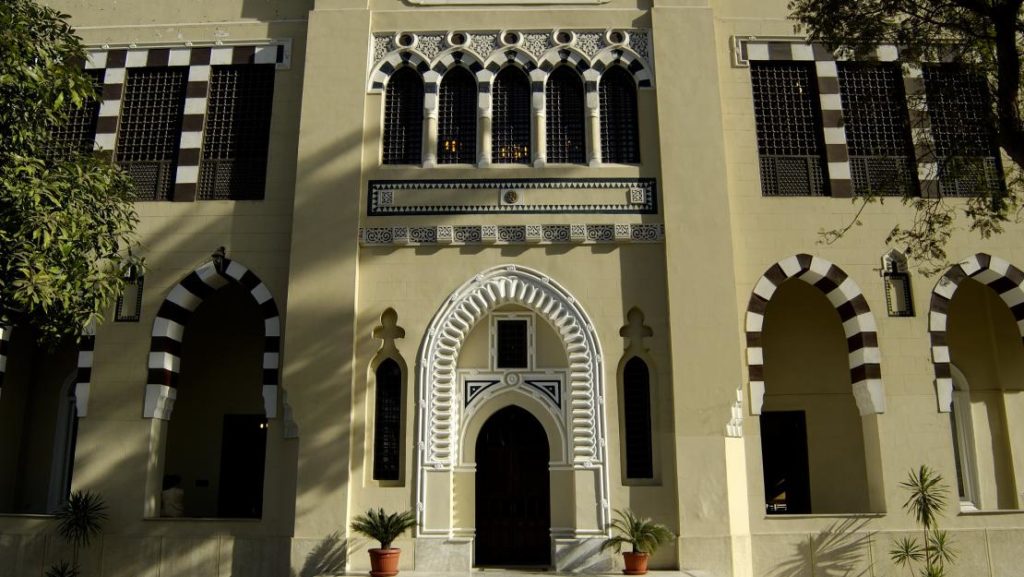
Maxime Rodinson’s book Mohammed has long been regarded as one of the touchstones of scholarship on the founder of Islam. Thirty years after its first publication in English, it remains the definitive introduction to the Prophet’s life. But in
1998 some graduates of the American University in Cairo (AUC) presented to the university authorities a complaint, objecting to the use of this book as 'disparaging Islam'. The debate remains perilous for as long as the scientific approach is unable to enter into the arena of discussion on the founding text of Islamic identity.
BY STEPHEN ULPH
AS AN HISTORIAN, Maxime Rodinson sought to delineate the ‘Muhammad of history from the Muhammad of faith.’ His biography of the Prophet is a rationalist study written from a sociological point of view, and attempts to explain the economical and social origins of Islam, drawing on wide-ranging scholarship and imaginative insight into the Prophet’s personality, family, background, and wider society. He provides a detailed view of the character of Muhammad taking into account his psychological setting and places the character into the context of seventh century Arabian society. Rodinson credits Muhammad’s success to a concatenation of events and circumstances: his environment, his time and his background, and his genius in constructing an ideology from elements imposed on man by his own situation – effectively constructing an Arab religion for the Arabs. The author provides psychological explanations for religious phenomena, and refers to the visions and revelations which Muhammad received as ‘emanations of his own being,’ or ‘hallucinations’ or possibly ‘mystical experiences’ or even ‘sensory phenomena’.
Muhammad, he argues, was lucky in the particular political window in which he was operating. Had it been a couple decades later
he might perhaps have found the Byzantine Empire consolidated, ready to fight off the attacks of the desert tribes successfully.
and instead of introducing Islam to the world, ‘Arabia might have been converted to Christianity.’
Rodinson was dismissive of the habit of western Orientalists to tip-toe around issues sensitive to Muslim belief. Needless to say, Mohammed is a book that a devout Muslim would find offensive, since it is not ‘sacred history’ – it treats the founder of Islam not as a prophet but as an all too mundane founder of a political state. Rodinson makes his position explicit:
May any Muslims who happen to read these lines forgive my plain speaking. For them the Koran is the book of Allah and I respect their faith. But I do not share it and I do not wish to fall back, as many Orientalists have done, on equivocal phrases to disguise my real meaning. This may perhaps be of assistance in remaining on good terms with individuals and governments professing Islam; but I have no wish to deceive anyone. Muslims have every right not to read the book or to acquaint themselves with the ideas of a non-Muslim, but if they do so, they must expect to find things put forward there which are blasphemous to them.
The censorship event
On 10th May 1998 a number of graduates of the American University in Cairo (AUC) presented to the university authorities a complaint against a French lecturer teaching Arab History, accusing him of disparaging Islam. They objected in particular to the use of two books: Mohammed by Maxime Rodinson and History of the Arabs by Davis and Green. Three days later the journalist Salah Muntasir wrote an article in his daily column for the Al-Ahram newspaper demanding the confiscation of Rodinson’s book. He gave his reasons:
The book contains more than 50 paragraphs that are offensive to any Muslim … On page 78 the author says that Muhammad married Khadīja to escape poverty and ensure a prosperous future. He adds that [Muhammad] suffered a complex in his childhood because of being a poor orphan and that he was attached to this wife despite the fact that she did not satisfy his sexual needs;
On page 115 he tries to stress that the Qur’ān is an invention of Muhammad and that he invented verses to suit him;
On page 151 the author says that the stories in the Qur’ān are what Muhammad learned and copied from the older religions and Jewish books;
On page 162 he says that towards the end of his mission the language of the Qur’ān became less tense and more relaxed;
On page 251 the author says that the sūras that were revealed in Mecca witnessed a change of content and became daily journals in which the instructions about the rules and internal regulations of the state were published. The author adds that the prose of the Qur’ān is filled with repetitions and linguistic errors;
On page 338 the author says that the Qur’ān remained after Muhammad and that it is a strange kind of poetry that was produced by the subconscious;
These are some examples of the content of the book. Can we call this freedom of expression that the teacher teaches his students? The teaching of this book should be stopped immediately and the case is not subject to compromise.[1]
The journalist went on to note that the American University represents western thought, underlined the Jewish identity of the author, and maintained that he represented what he held to be the ‘clash of cultures’ promoted by western scholars. As soon as this was published the Egyptian government’s Minister of Education Dr. Mufīd Shihāb demanded that the AUC withdraw the book forthwith from the library shelves and from the bookstore. As recorded by Nasr Hāmid Abū Zayd in a later critique of the affair, the Minister had expressed his thoughts on the matter in the following way:
There is a collection of manners and values in every society that constitutes public and private order, and that which might cause offense in this society might well not cause offence in another. In Egypt the demands of public order do not allow sublime religious beliefs to be the subject of mockery and criticism and hurt. I am in favor of freedom of scientific research and at the forefront of those who support it in social sciences and the natural sciences. But this is provided it does not get to the stage of prejudicing public order and private manners throughout society and the beliefs it shares. This is a basic element of the law. It is for this reason that we have called a halt to the study of the book Mohammed by the author Maxime Rodinson in the American University.
The reason for this is that the book says that the noble Qur’ān was not revealed by Almighty God … When I established that what Salāh Muntasar [the author of the article calling for the book to be censored] had said was 100 per cent correct, I issued my decision to halt the study of this book in the university. In Paris, where they have more freedom than we do, they took Garaudi[2] to court and he was prosecuted. Why? Because some of what he said about the Nazis provoked criticisms, such as his view that the number [of Holocaust victims] had been exaggerated and was incorrect … that there were things unfortunately taken as read and unable to be impugned, that the Jews were not persecuted … i.e. merely because you criticize and say that the Jews were not persecuted and write about this, then you are taken to court and convicted. This book [Mohammed] conflicts with the freedom of scholarly research. If any book appears that goes against sublime religious beliefs, I shall duly suppress it. Censorship in the university applies to that which conflicts with society’s beliefs … After the appearance of a book we read it and examined it to see if it was suitable for study. If you wish to write a book then you are welcome to do so, but do not offend the values of society.[3]
Barely a day later the director of the AUC issued an official apology for the ‘error’ and indicated that he acted as soon as he heard of the issue and withdrew the book, and cancelled the lecturer’s contract. A number of intellectual publications followed by deploring his action, defending the book along with its author and the lecturer, and ridiculing the cringing posture of the AUC. Their objections were also mirrored by a number of AUC staff. Despite their support, the lecturer in question took fright and went underground. Significantly, the students’ defense of their lecturer was cautiously structured, indicating the type of climate in which the controversy was erupting. They indicated that
when we read Maxime’s work we were under no pressure or threat from the subject lecturer, indeed we were entirely happy to be given the opportunity to respond to these errant ideas and baseless claims written by the enemies of Islam and of all the celestial religions.
The lecturer in question was given an offer of an alternative address and bodyguards, but refused it.
In search of deeper motivations
Nevertheless, the tone of the general response against the ‘chorus of apologists for atheism’ can be gauged by such comments as the following:
The author acknowledges on p.13 of the Introduction to the book that he is a kāfir, and that he has recourse to what he terms ‘a deeper intellectual analysis of the Prophet of Islam’. This is a method – or rather a trick – that allows Rodinson to achieve his aim, which is to cast as many insults and accusations as possible against the Prophet of Islam.[4]
There was no lack of recourse to the inevitable ‘deeper’ causes:
As soon as the articles were published which uncovered the truth about the book and the identity of Rodinson the author, who recently called upon Arabs to naturalize relations with the Zionist entity in occupied Palestine … the truth is that this battle has uncovered the strong connectedness between Marxism and Zionism, and Rodinson is one of the foundational theorists of Marxism …[5]
“There is a connection”, wrote one author, “between the teaching of the book and the current celebrations commemorating the centennial of the French invasion to Egypt.”[6]
Most of the reaction was similarly supportive of the banning, and in fact indignant that there was not more of it. “The danger is not only in this book that insults the Prophet” an anonymous author wrote in the publication Al-Ahrār,
but more particularly in that there is no monitoring over the foreign universities in Egypt, because the foreign universities are a part of their embassies. That is, in the case of the American University, it is a part of the American embassy. It therefore can do as it likes with its curricula. What is required is to place a limitation to the complete independence of the foreign universities. There should be censorship over the books that they teach, or at least there should be a right to evaluate them.
There are no fears in this respect concerning the Egyptian university because the books and curricula are fully monitored and the professors also monitor each other through their advice and criticisms.[7]
The prayers of the indignant writer were answered. Over a period of 10 months following the Rodinson affair, censors duly reviewed 450 books in the AUC library, of which they banned 60 or so, including Jibran Khalil Jibran’s The Prophet, Alifa Rifaat’s Distant View of a Minaret, Mohammed Choukri’s For Bread Alone and a new Penguin translation of the Qur’ān. The picture painted was of a libertine AUC at odds with its environment, one whose books were each
sowing doubt, where we find an entire generation that renounces society, because it believes what AUC says is true and what society says is false.[8]
A growing rift
The book Mohammed was originally published in French in 1961. The English translation was first published in Great Britain by Penguin Press in 1971, and by Pelican Books in 1971, meaning that, in Egypt, the book has been known most likely at least since that date. Rodinson actually spoke about his thoughts in 1970 in Cairo when he was invited by the Al-Ahram newspaper – the same newspaper than now published its denouncement of him – to give a lecture on the topic of the book. His thoughts were then very well received. Given that the book had therefore been in use at the AUC for over three decades, the question remains as to why, in 1998, it had become problematic. Reading between the lines, the AUC president John Gerhart observed:
There’s a conservative – I don’t want to say necessarily a religious – element that sees increasing gaps in income and opportunity, and they fear that they’re going to be left behind and someone else will benefit.
He also noted that shifts in the demography of AUC’s student population were making future objections to its reading material somewhat inevitable:
It’s problematic for parents to raise their children one way and then hand them over to an institution whose declared principles are at odds with the dominant ones of a society … I do not believe we can ask parents to forgo their right to protest any aspect of their children’s education, but I think it might help to forewarn them that they may object to some ideas to which their children will be exposed.[9]
This creeping Islamization is an illustration of what I mentioned in my recent review for you about the climate, steadily growing for decades, where
religious discourse is decidedly the most effective system in communicating ideas among Egyptians. It is almost the only basis through which most can frame the world and form a common, clearly communicable conception of it. Currently, it constitutes the primary foundation of the still developing modern Egyptian identity.[10]
The broader intellectual context
Professor Nasr Hāmid Abū Zayd – himself a conspicuous victim of Islamist activism – listed the Rodinson event as an important marker of the new ‘academic censorship’ that was gathering pace and wrote on this in an article entitled Censorship and its Implications for Scientific Research[11]. His main concern was not only that such an act of censorship took place, but that it was almost entirely unopposed, aside from some scattered articles.
What appears to be brewing is a coming intellectual clash, whereby the research which the West has long become used to is about to break over a society that is ill-prepared for its results. Andrew Hammond writes of
a final subjection of Islam to the same scholarly indignities that have already been visited upon Christianity, Judaism, and other religions[12]
and points to the gradual waning, especially since September 11 2001, of Orientalist politeness vis-à-vis the sensibilities of Muslim believers. Works such as Ibn Warraq’s The Origins of the Koran and The Quest for the Historical Muhammad would fit into this category, and even though
inside the Islamic world … there is as yet little knowledge of the details of Western scholarship and these arguments … there is a widespread sense among Arab intellectuals, politicians and preachers that the West wants to shake the faith of Muslims.[13]
The Algerian scholar Mohamed Arkoun commented on the suddenness of the shock and the insensitivity of western scholarship to areas of sacred Muslim sensibilities:
I have observed that Western scholarship on Islamic studies, apart from its fragile results, has often left Muslims with a field of ruins, without caring about their intellectual responsibility for any damage caused [and] the psychological, ethical, existential impact of Muslims suddenly faced with the collapse of their inherited traditional acceptance of ‘revealed Truth’ and ‘divine Law.’
The problem, he noted, was that
Orientalists, with their intellectual arrogance, shook the foundations of a ‘sacred’ tradition, knowing that no one from inside the community would take up the cudgels and propose new horizons of meaning to those that had been dismissed.[14]
But what is interesting about the event is that Rodinson’s work actually pre-dates the effects of the ‘Wansbrough School’[15] research, which threatens to break over the ramparts of traditional scholarship on Islam, both eastern and western. This line of research is far more radical than even Rodinson attempted, since his work still remains within the realm of inherited Muslim historiography, even though it takes a critical view of these.
The incident with Rodinson’s work Mohammed should be viewed in the light of developments in scholarship on early Islam and the suspicions harboured about the purpose of this scholarship. For example, according to the Muslim writer and thinker S. Parvez Manzoor, there is a solidly conspiratorial explanation for it all:
In order to rid the West forever of the ‘problem’ of Islam, [Western man] reasoned, Muslim consciousness must be made to despair of the cognitive certainty of the Divine message revealed to the Prophet. Only a Muslim confounded of the historical authenticity or doctrinal autonomy of the Qur’anic revelation would abdicate his universal mission and, hence, pose no challenge to the global domination of the West. Such, at least, seems to have been the tacit, if not the explicit, rationale of the Orientalist assault on the Qur’an.[16]
The journal Al-Manār al-Jadīd wrote at the time of the confiscation of Mohammed from the AUC:
What the teaching of the book Mohammed by the French Marxist Jew Maxime Rodinson stirred up in the American University of Cairo will not remain merely a storm, but is a real battle that is now joined, and it will not likely end without many ramifications.[17]
And the truth is that even modern Arab liberal thinkers, who may come out in defence of works such as Rodinson’s Mohammed, may be shocked at what the western academics are saying today and what is in store for them as their works become more widely known.
The doctrinal stakes
If the gloomy predictions prove justified, and Egyptian society is progressively identifying with Islamist priorities, the prospect of further clashes with academe and scholarship seems certain, particularly on such sensitive issues as the foundations of Islam.
If the gloomy predictions prove justified the prospect of further clashes with academe and scholarship seems certain
The debate remains perilous for as long as the scientific approach is unable to enter into the arena of discussion on the founding text of Islamic identity. At the moment the discussion remains at a level of western academics, where even here the work is labelled by some as ‘psychotic vandalism,’ an act of enmity or at best ‘reckless rationalism’[18]. This is because the implications of the research – the placing of the Qur’ān within history and the presentation of the rise of Islam as an historical phenomenon with mundane operative elements powering it (Rodinson’s economic and social causes) – would effectively delegitimize the whole subsequent historical and doctrinal experience of the Muslim community.
Muslim traditionalists, their institutions and Islamist activists in particular have much to fear from the coming debate. The implications of taking an approach to the origins of Islam that does not follow the lines of ‘sacred history’ are particularly problematic, for the following reasons:
- The challenge to the authority of passive textual referencing in legal thought
The Qur’ān would emerge more properly as a text about God and hence subject to interpretation.[19] It means that the Islamist technique of plucking verses, or even half-verses out of context (on the grounds that every part of the Text is valid for all time) is no longer available to them to defend their positions;
- The imperfection of the text would impact on the claim to direct divine dictation
Traditional Islamic doctrine ‘particularizes’ Islam over other faiths and its challenging would establish the role of human agency. A distinguishing feature of Salafist thought is to repudiate the concept of a ‘common humanity’ (as a western modernist concept) by overriding it with a purported Islamic exceptionalism, allowing for ethical non-equivalence. The result of broadening the findings of this research would be to undermine the case for the Sharī‘a as a non-negotiable pre-requisite for Islamic identity;
- The promotion of a self-confident progressive Islam
By removing the Qur’ān’s immunity to internal historical development the doors to subsequent development in the religion of Islam would be opened, overriding the pattern set by al-salaf al-sālih and the early scholars of fiqh;
- The de-legitimization of fundamentalist readings
If the Qur’ān’s existence is not from a process of immutable inspiration, but a product of intellectual, theological and ethical development, this calls into question the authority of the fundamentalist veto against creative interpretation typified by Ibn Hanbal:
“Whoever involves themselves in any theological rhetoric is not counted amongst the Ahl us-Sunnah, even if by that he arrives at the Sunnah, until he abandons debating and surrenders to the texts.”[20]
and the direction that Muslim thought would take would be entirely anti-Salafist;
The 1998 incident at the AUC is a conspicuous marker in the progressive deterioration of the climate and the raising of tensions. Rodinson’s Mohammed joins the ranks of conspicuous works banned under the influence of Muslim activists:
ابي آدم: قصة الخليقة بين الاسطورة والحقيقة (‘My Father Adam: The Story Of Creation Between Myth And Truth’) by ‘Abd El-Sabour Shahin
احوال المرأة في الاسلام (‘The Condition of Women in Islam’) by Mansour Fahmi
الفن القصصي في القرآن (‘Storytelling Art in the Qur’ān’) by Muhammad Ahmad Khalāf Allāh
الاسلام واصول الحكم (‘Islam and the Legal Bases of Rule’) by ‘Ali ‘Abd al-Rāziq
في اشعر الجاهلي (‘On Pre-Islamic Poetry’) by Taha Hussein
An Introduction to the Grammar of the Arabic Language by Louis Awwad
اولاد حارتنا (‘Children of Our Alley’) by Naguib Mahfouz
Encyclopedia of the History of Fine Arts, Arabic and Islamic Drawing by Tharwat Ukāsha and Amīn al-Khūlī
Islam and the Fifteenth Hijri Century by Hasan Hanafī, Fathī Radwān, ‘Azīm Mannāf and Muhammad Imārah
مسافة في عقل رجل (‘A Room in a Man’s Mind’) by ‘Alā’ Hāmid
من هنا نبدأ (‘We start from here’) by Khalīd Muhammad Khalīd
Religion of the Eastern People by Nicholas Misayki
شدو الربابة باحوال مجتمع الصحابة (‘On the Conditions of the Companions’ Society’) by Khalīl ‘Abd al-Karīm
تحرير المرأة (‘The Liberation of Woman’) by Qāsim Amīn
The difference now is that the pace of suppression is accelerating.
[1] Salāh Muntasir, كتاب يجب وقفه (‘A book that should be banned’) Al-Ahram, May 13 1998.
[2] Roger Garaudi is a French philosopher and convert to Islam. Following his publication in 1996 of Les Mythes fondateurs de la politique israelienne, which included Holocaust denial, French courts banned the work, fined the author and issued him with a suspended jail sentence. As a result Garaudi was hailed in the Muslim world and received substantial financial, political and public support.
[3] Nasr Hamid Abu Zayd, الرقابة وتوابعها في البحث العلمي , Al-Madā, September 9th 2004. available at http://almadapaper.net/sub/10-222/10.pdf
[4] Hasan Yūsuf al-Sharīf, إلى الجامعة الأمريكية: مع السلامة … ارحلوا عن أرضنا (‘To the American University: Goodbye … Get out of our country’).
[5] Hasan Yūsuf al-Sharīf, op. cit. In point of fact Maxime Rodinson was an outspoken opponent of Zionism and the State of Israel.
[6] Anon. ‘Insulting the Prophet in the American University raises the anger of Muslims and Christians’, Al-Aḥrār, May 16 1998.
[7] Al-Aḥrār, May 16 1998.
[8] Joseph Logan, ‘Morality cops in the classroom: AUC’s censorship dilemma prompts hard-line state response,’ Cairo Times, March 18-31, 1999.
[9] Joseph Logan, ibid.
[10] Amr el-Zant, ‘Egypt’s continuing struggle with Western modernity’, Al-Masry al-Youm, 23rd January 2012.
[11] Nasr Hamid Abu Zayd, op.cit.
[12] A. Hammond, Pop Culture, Arab World, 332-3.
[13] A. Hammond, op.cit.
[14] M. Arkoun, Islam: To Reform or To Subvert? Saqi Books, London 2006, pp.70-71.
[15] So named after John Wansbrough, an American Orientalist who caused a furor in the 1970s when his research on early Islamic manuscripts led him to posit that the rise of Islam was a mutation of what was originally a Judeo-Christian sect trying to spread in Arab lands. He argued that as time went on the Judeo-Christian scriptures were adapted to an Arab perspective and mutated into what became the Qur’ān, which itself underwent development under the influence of various Arab tribal sources. Wansbrough sought to demonstrate that much of the traditional history of Islam was a fabrication of later generations seeking to forge and justify a self-standing religious identity. Muhammad could therefore be seen as a manufactured mythical personage created to provide the Arab tribes with their own Arab version of the Judeo-Christian prophets.
[16] S. Parvez Manzoor, Method Against Truth, Orientalism and Qur’anic Studies, 1987.
[17] Hasan Yūsuf al-Sharīf, op. cit.
[18] S. Parvez Manzoor, Method Against Truth, Orientalism and Qur’anic Studies, 1987.
[19] An indication of this are the de rigueur grammatical introductions to religious/legal treatises, and the de facto prioritization of obedience to the letter of the text over the workings of the individual’s conscience.
[20] Ibn Hanbal, أصول السنة (‘The Foundations of the Sunna’), Ch. 10 (p.169) ed. A. Zumarlee, April 1991.
